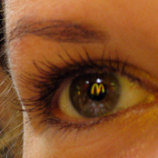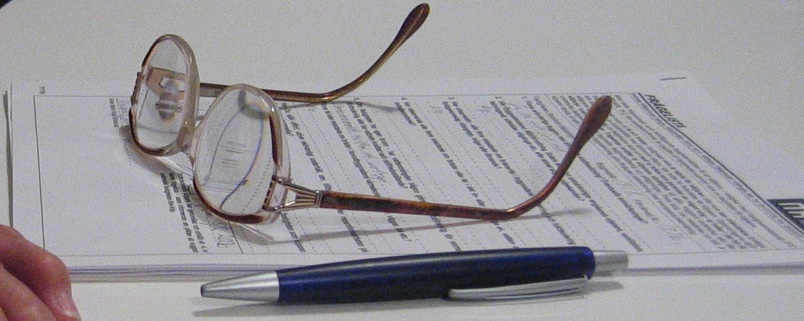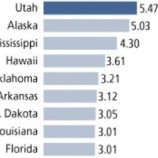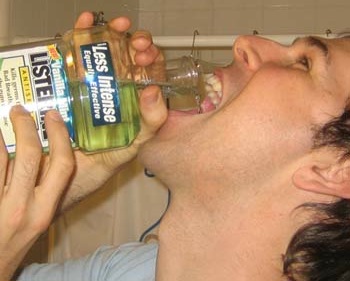Forbes wanted to know which states had the highest average balances per household in May, so they took the total amount of debt in 50 major metropolitan areas, divided that by the number of households, then divided that by the median household income for that area for May. Here are some of their results.
studies

Expensive Purchases Are Like Peacock Feathers, Except They Don't Work
Geoffrey Miller, an evolutionary psychologist at the University of New Mexico, says marketers are trying too hard to find a working model of why people spend money the way they do. It really comes down to the human equivalent of “cost signaling” in the animal world—a sort of “peacock feather” display that’s supposed to tell peers and prospective mates how smart or sophisticated we are. The only problem is, other people never fall for it.

Plastics Industry: Reusable Bags Are Bacteria Traps That Will Kill You And Your Family
Those green reusable bags that are all the rage? The plastics industry this week released a study concluding that they are nothing more than bacterial totes, which might be scary if it were true. BarfBlog looked at the study’s methodology and then ate through its main points.

../../../..//2009/05/05/now-your-money-can-be/
Now your money can be at work in a different way, helping predict outbreaks as you spend it. Researchers at Northwestern University are testing a new computer modeling program that tracks the flow of dollar bills across the US as a way to predict the spread of swine flu. [New York Times]

Big Shocker: Students Are Abusing Credit Cards
Sallie Mae‘s 2009 study of credit card use shows that students just love binging on plastic. Kids these days have more than four cards on average, and most of them carry a balance pushing $3,000. Many don’t tell their parents, and almost a fifth graduate with more than $7,000 of debt. This is how meltdowns start…

Anti-Inflammatory Drugs Don't Cut Risk Of Dementia After All
The latest study of people who take large amounts of non-steroidal anti-inflammatory drugs (NSAIDs) indicates that, contrary to what earlier studies suggested, they don’t seem to cut the risk of developing Alzheimer’s. In fact, it’s just the opposite: “During the study, 476 people developed dementia, and heavy NSAID users had a 66% higher risk of developing the condition than those with low or no use.”

McDonald's Remains America's Favorite Fast Food Restaurant
Consumer research company Experian Simmons (yes, owned by Experian), has released a new study of fast food industry covering the past 5 years, and it looks like we still love going to McDonald’s more than any other fast food restaurant.

Is Buy.com Friendlier To The Environment Than Brick And Mortar Stores?
A study by the Green Design Institute at Carnegie Mellon University in Pittsburgh states that when comparing getting a flash drive from Buy.com versus a physical retailer, Buy.com ends up being about 30% less damaging to the environment. To reach their conclusion, the researchers compared transportation, packaging, warehousing, and energy usage both by the consumer and the retailer.

FICO Confirms: Reduced Credit Lines For Good Borrowers
A study from Fair Isaac confirms that even the best borrowers are seeing their credit lines slashed as banks move to boost profitability during the recession. 16% of Americans have seen their credit lines reduced by an average of $2,200, and of them, 11% had no late payments or negative marks on their credit report.

High Credit Limits Encourage Consumers To Spend More
The more credulous you are, either because you’re new to the whole line-of-credit experience or because you’re uneducated, the more likely you are to mistake a high line of credit for an indication of your future earnings potential. You can see how this can lead to bad things, as noted by the researchers who studied this unfortunate problem earlier this decade. Luckily, the savvier you get about credit cards, the less influence your credit limit has on you, which is yet another great reason to make financial literacy education mandatory.

The Easier It Is, The Safer It Seems
Self-identified rational people take pride in the fact that they can’t be easily manipulated, but of course that’s the pride part of their dumb monkey brains talking. Here’s an interesting study that measured whether hard-to-pronounce words were perceived as riskier than words that were easier to pronounce—in this case, by comparing fake additives in food and asking which ones were more likely to be harmful.

Single Men Trade Stocks Too Much
Nick Kapur at The Motley Fool says that men trade stocks more frequently than women. This is not a good thing; the result of all this hyperactivity and overconfidence is lower earnings on your investment. He writes, “Worse still (for unmarried guys like me) is that single men trade a whopping 67% more than single women, earning them annual net returns of 2.3% less! The authors cite increased trading costs, taxes, and a greater tendency to speculate as reasons for this underperformance.”

Consumers Don't Read Contracts, Even Ones That Scream "Danger: Do Not Sign!"
Almost nobody reads consumer contracts before signing, according to two separate academic studies. One study from NYU included a sample contract that bound the signer to stay until dismissed, do push-ups on command, and shock other participants, even if they “screamed, cried, and asked for medical assistance.” 95.6% considered the contract for an average of two seconds and then gladly signed.

Which State Consumes The Most Online Porn?
Utah, that’s which state! Or so says Harvard researcher Ben Edelman, who “analyzed subscriber data from an unnamed ‘top 10 seller of online adult entertainment.'” When comparing broadband subscribers, Utah comes in first with an average of 5.47 per 1000. In second place is Alaska with just over 5.03 per 1000, and coming in third is Mississippi.

Chicago Considering A Partial Ban On Bisphenol-A Products
Chicago might become the first place in the United States to partially ban the sale of products that contain Bisphenol-A (BPA), the chemical that some studies have shown may have harmful effects on humans. They’re proposing to forbid the sale of any BPA product intended for children. Canada banned the chemical last year, but the FDA has so far come down on the side of manufacturers.

Study Finds Bisphenol-A Can Enter Your Body Through Non-Food Sources
A new study from the University of Rochester shows that bisphenol-A (BPA), a potentially toxic chemical found in many plastics, can enter the body via non-food sources and lingers in the body longer than previously thought.




